
Kod: 15178879
Divine Violence and the Christus Victor Atonement Model
Autor Martyn John Smith
In this book Martyn Smith addresses the issue of God's violence and refuses to shy away from difficult and controversial conclusions. Through his wide-ranging and measured study he reflects upon God and violence in both biblical a ... więcej
- Język:
 Angielski
Angielski - Oprawa: Miękka
- Liczba stron: 262
Wydawca: Pickwick Publications, 2016
- Więcej informacji o książce

140.22 zł
Zwykle: 147.64 zł
Oszczędzasz 7.42 zł

Dostępna u dostawcy
Wysyłamy za 14 - 18 dni
Zobacz książki o podobnej tematyce
-

Divine Violence and the Christus Victor Atonement Model
217.18 zł -5 % -

Kite Runner
73.63 zł -

T&T Clark Companion to Atonement
212.55 zł -

Christus Victor
74.84 zł -23 % -

Instruction Shall Go Forth
290.42 zł -5 % -

Dirge
78.77 zł -

Frog Brothers and Friends
64.87 zł
Bon podarunkowy: Radość gwarantowana
- Podaruj bon o dowolnej wartości, a my się zajmiemy resztą.
- Bon podarunkowy dotyczy całej naszej oferty.
- Możesz wydrukować elektroniczny bon z e-maila a następnie przekazać go obdarowanemu.
- Ważność bonu wynosi 12 miesięcy od daty wystawienia.
Więcej informacji o Divine Violence and the Christus Victor Atonement Model
Za ten zakup dostaniesz 82 punkty
 Opis
Opis
In this book Martyn Smith addresses the issue of God's violence and refuses to shy away from difficult and controversial conclusions. Through his wide-ranging and measured study he reflects upon God and violence in both biblical and theological contexts, assessing the implications of divine violence for understanding and engaging with God's nature and character. Jesus too, through his dramatic actions in the temple, is presented as one capable of exhibiting a surprising degree of violent behavior in the furtherance of God's purposes. Through a reappropriation of the ancient Christus Victor model of atonement, with its dramatic representation of God's war with the Satan, Smith proposes that Christian understanding of both God and salvation has to return to its long-neglected past in order to move forward, both biblically and dynamically, into the future. ""In this well-researched study on the atonement, Martyn Smith refuses to shy away from the hard theological questions. Neither is he afraid to take a controversial stance. Insisting that theology's task is to allow the Scriptures to speak for themselves, Smith boldly claims that God regularly engages in acts of violence in his redemption of the world. The result is a robust re-articulation and defense of the Christus Victor model of the atonement."" --Hans Boersma, J. I. Packer Professor of Theology, Regent College ""There is no getting away from it, Martyn Smith's debutant book is as contentious and exciting as the work of Gustaf Aulen, which he champions. Aulen's book Christus Victor, A Historical Study of the Three Main Types of the Idea of Atonement (1931) was a revisionist theological history divided into what he called the classical theory, the scholastic, and the moral exemplar theories. The classical model he identifies with the (mainly Eastern) Fathers of the Early Church, the scholastic begins with Anselm in the early middle ages, (eleventh century) and the moral exemplar model with Peter Abelard (also eleventh century, but a little later than Anselm) At the present time, Christians of a liberal disposition follow Abelard because in doing so they can talk of peace, reconciliation, and morality without a commitment to the supernaturalism of pre-Enlightenment metaphysics. More Conservative Christians are divided over the first two types. Many Evangelicals, for example, see the Juridical views of Anselm as the touchstone of orthodoxy whereas the Christus Victor type, when combined with a strong Incarnational view of the atonement--the focus being the person of Christ--the ontological issue of who he is takes precedence over what he does (the work of Christ is dependent on the fact that he is truly God (ho theos) and truly human (anthropos) The first epistle of John (1 John 4:2) tells us that those who belong to God are those who recognize that Jesus Christ has come in the flesh. Smith argues, following Aulen, that the classical model was the one that best explained the atonement. The full import of the Christus Victor type is clearly described in the words of John's first epistle, 'The Son of God was revealed for this purpose, to destroy the works of the devil' (1 John 3:8 NRSV). Smith wonders, as do I, whether you can tell the Gospel story without a belief in a real Devil. The fact, by the way, that Smith calls the Evil One 'the Satan' is not affectation but a grammatical convention in Hebrew that Satan is a title not his name; the actual meaning of the word Satan is adversary. Smith's book rests on a disturbing but prescient premise: Christ's victory involves violence. This is a shocking view of the cross, which these days is more often understood in the words of Walter Wink, as 'redemptive non violence.' Smith, however, is nothing if not bold. It is a fact that in an era of terrorism and violence talk of the violence
 Szczegóły książki
Szczegóły książki
Kategoria Książki po angielsku Humanities Religion & beliefs Religion: general
140.22 zł
- Pełny tytuł: Divine Violence and the Christus Victor Atonement Model
- Autor: Martyn John Smith
- Język:
 Angielski
Angielski - Oprawa: Miękka
- Liczba stron: 262
- EAN: 9781498239479
- ISBN: 1498239471
- ID: 15178879
- Wydawca: Pickwick Publications
- Waga: 386 g
- Wymiary: 226 × 152 × 18 mm
- Data wydania: 23. September 2016
Ulubione w innej kategorii
-

Waking Up
52.37 zł -15 % -

The Righteous Mind
61.14 zł -23 % -

End of Faith
47.34 zł -23 % -

Death
17.72 zł -22 % -
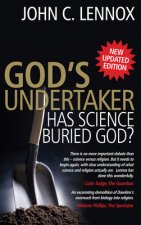
God's Undertaker
51.87 zł -23 % -
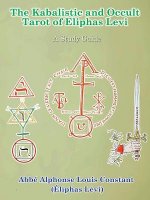
Kabalistic and Occult Tarot of Eliphas Levi
152.10 zł -

Anarchy Evolution
65.77 zł -23 % -
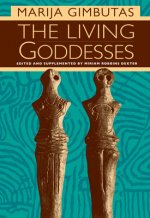
Living Goddesses
193.51 zł -

Original Aramaic New Testament in Plain English with Psalms & Proverbs (8th Edition Without Notes)
147.47 zł -

Scientific Healing Affirmations
35.05 zł -

Conversations With God
54.79 zł -11 % -

The Psychology of Selling
65.77 zł -23 % -

As a Man Thinketh
31.02 zł -
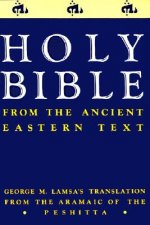
Holy Bible
164.60 zł -10 % -

Encyclopedia of Demons in World Religions and Cultures
235.21 zł -

American Cosmic
117.55 zł -

Bhagavad Gita
33.64 zł -23 % -

Koran
103.55 zł -

Secular Age
109.69 zł -5 % -

Mabon
57.71 zł -5 % -

Religion for Atheists
61.14 zł -23 % -
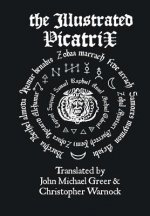
Illustrated Picatrix: the Complete Occult Classic of Astrological Magic
297.17 zł -

Cosmic Chemistry
70.41 zł -23 % -

Princess Majestic Bible Tabs
36.56 zł -10 % -
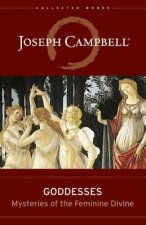
Goddesses
123.29 zł -4 % -

You Are the Universe
64.66 zł -15 % -

Good Morning, Holy Spirit
70.41 zł -23 % -
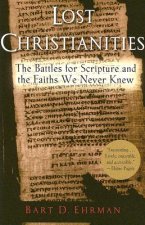
Lost Christianities
54.29 zł -23 % -
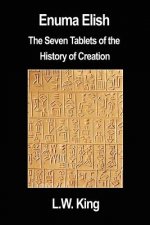
Enuma Elish
78.74 zł -

Golden Bough
85.62 zł -5 % -

Mary Magdalene and the Divine Feminine
69.50 zł -4 % -
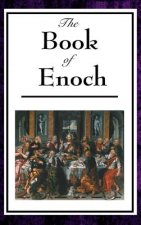
Book of Enoch
97.30 zł -

Energy in Orthodox Theology and Physics
169.93 zł -

History of God
61.14 zł -23 % -

Religions Book
91.36 zł -14 % -

Reign of Quantity and the Signs of the Times
161.68 zł -

Magic: History, Theory, Practice
98.51 zł -
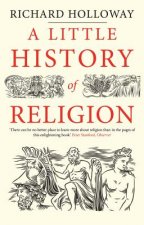
Little History of Religion
65.77 zł -4 % -

Experience of God
77.56 zł -22 % -
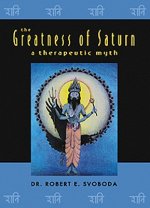
The Greatness of Saturn
65.57 zł -4 % -

Dao De Jing
77.76 zł -11 % -
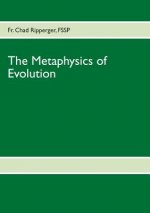
Metaphysics of Evolution
57.11 zł -

Case for Polytheism
49.96 zł -9 % -

History of Israel, Fourth Edition
217.28 zł -5 % -
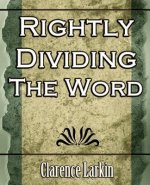
Rightly Dividing the Word (Religion)
151.70 zł -

City of God
81.49 zł -5 % -

Fallen Angels and the Origins of Evil
77.46 zł -5 % -
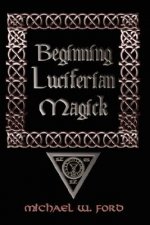
Beginning Luciferian Magick
98.71 zł -
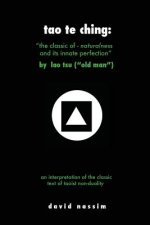
Tao Te Ching - by Lao Tsu
75.14 zł
zadowolonych klientów
Od roku 2008 obsłużyliśmy wielu miłośników książek, ale dla nas każdy był tym wyjątkowym.
Copyright! ©2008-24 libristo.pl Wszelkie prawa zastrzeżonePrywatnieCookies


 21 milionów książek
21 milionów książek Dostawa 10.99 zł
Dostawa 10.99 zł (32) 444 93 66 (8-15.30h)
(32) 444 93 66 (8-15.30h)